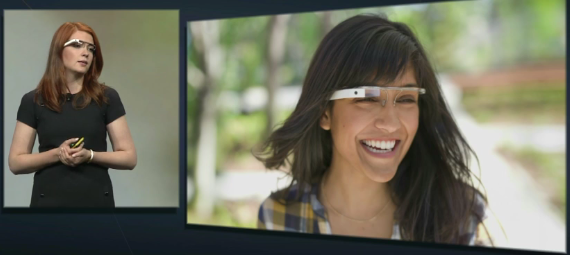 NEWS
NEWS
 NEWS
NEWS
 NEWS
NEWS
At Google I/O today it became readily apparent why a specialized infrastructure is as much about extending into the enterprise market as it is about Google needing a way to support its application ecosystem and its developer community.
In many ways, Google’s situation mirrors what we see in the market with infrastructure providers, application developers and the nascent platform as a service (PaaS) players, who are trying to jockey in between.
Google has its own PaaS in Google App Engine. It has an increasing number of service and hardware that deliver the data.
Today alone it announced:
Google Plus for the Android tablet
Nexus Q – a sphere like streaming media consumer electronic product that will work with the new Nexus 7 tablet and other Android devices.
Google Now: A new take on mobile search that shows your search results with a new “card,” interface, contextual search and data analysis to tell you how long it will take you to get somewhere.
Google Glass: Augmented reality, front-end camera, integrated radio, microphone – Google Glass shows how the cloud connects with devices and apps in an immersive manner.
The Google news shows how the integration of hardware and software makes for responsive applications that uses data to provide context and make predictions.
With that capability will come droves of developers who make apps of all varieties. PaaS eases that complexity. For infrastructure providers, it’s why you see Amazon Web Services (AWS) moving up the stack. They are responding to customers who want more functionality.
Application providers are also building their own platforms and infrastructures. Salesforce.com built the Force.com platform for customers to build apps. Salesforce.com recognized a long time ago it had to build its own infrastructure to fit the needs of its applicatipns. Heroku, a PaaS acquired by Salesforce.com. will most likely get folded into Force.com at some point to enhance the Salesforce.com environment.
Red Hat is building OpenShift, a PaaS for its applications that also fits with its own infrastructure.
The list goes on.
Logically then it makes sense for Google to build its own infrastructure. It has its Android devices, Chromebooks and consumer electronic devices in the Nexus Q. It has a growing application ecosystem. Addressing the enterprise market means it needs to be even more specializd with how it integrates on-premise mission critical applications.
An AWS-style cloud would mean Google could provide customers a specialized infrastructure. That would make infinite sense considering Google’s aspirations for the enterprise market and the unique demands of its applications and next generation mobile devices.
;
;
Support our mission to keep content open and free by engaging with theCUBE community. Join theCUBE’s Alumni Trust Network, where technology leaders connect, share intelligence and create opportunities.
Founded by tech visionaries John Furrier and Dave Vellante, SiliconANGLE Media has built a dynamic ecosystem of industry-leading digital media brands that reach 15+ million elite tech professionals. Our new proprietary theCUBE AI Video Cloud is breaking ground in audience interaction, leveraging theCUBEai.com neural network to help technology companies make data-driven decisions and stay at the forefront of industry conversations.